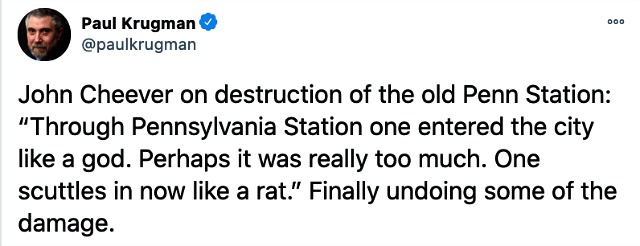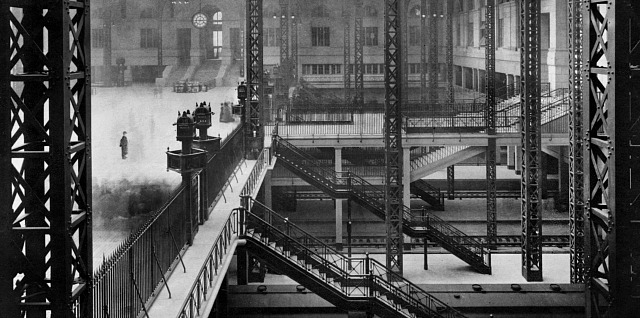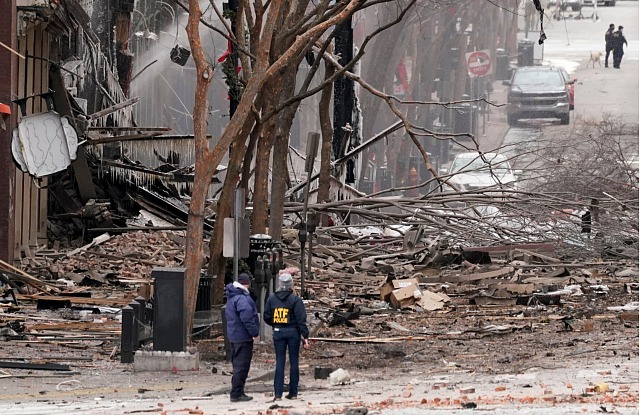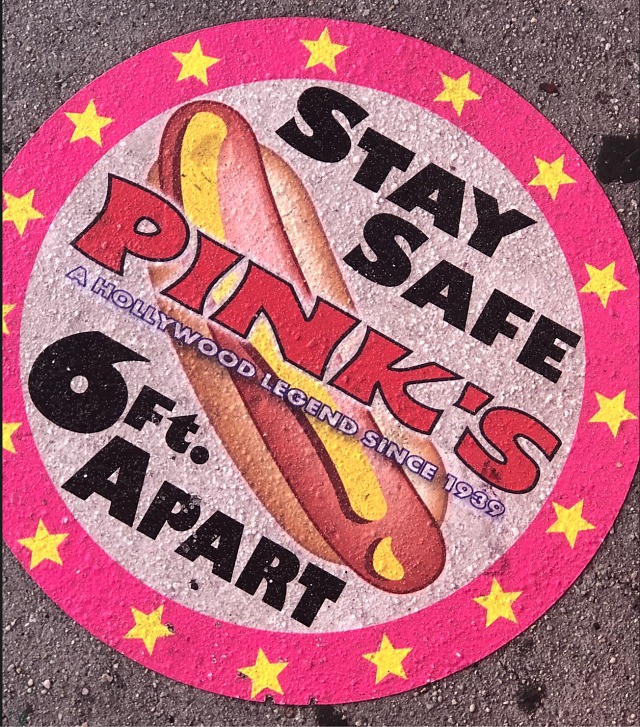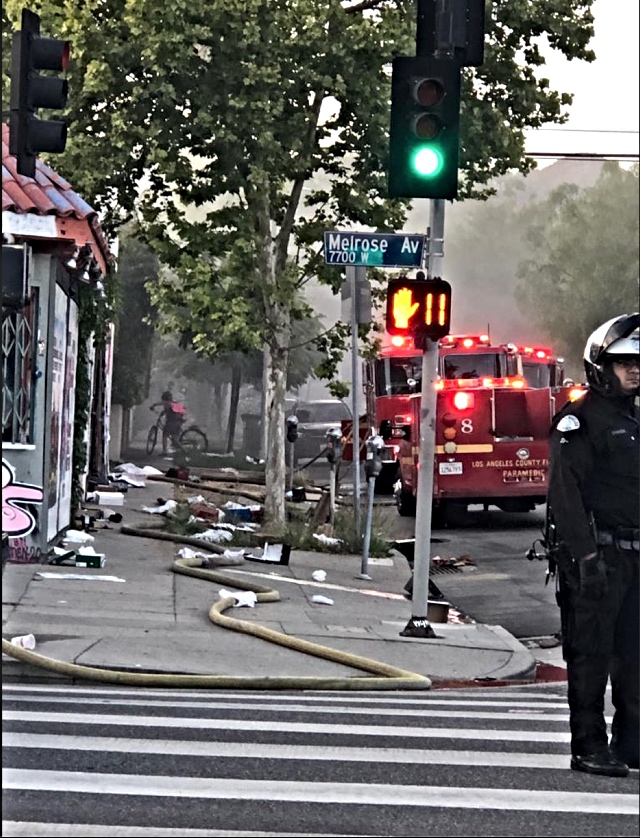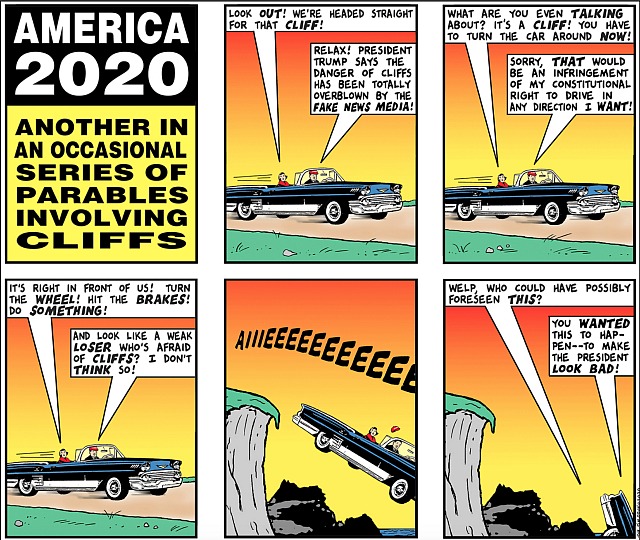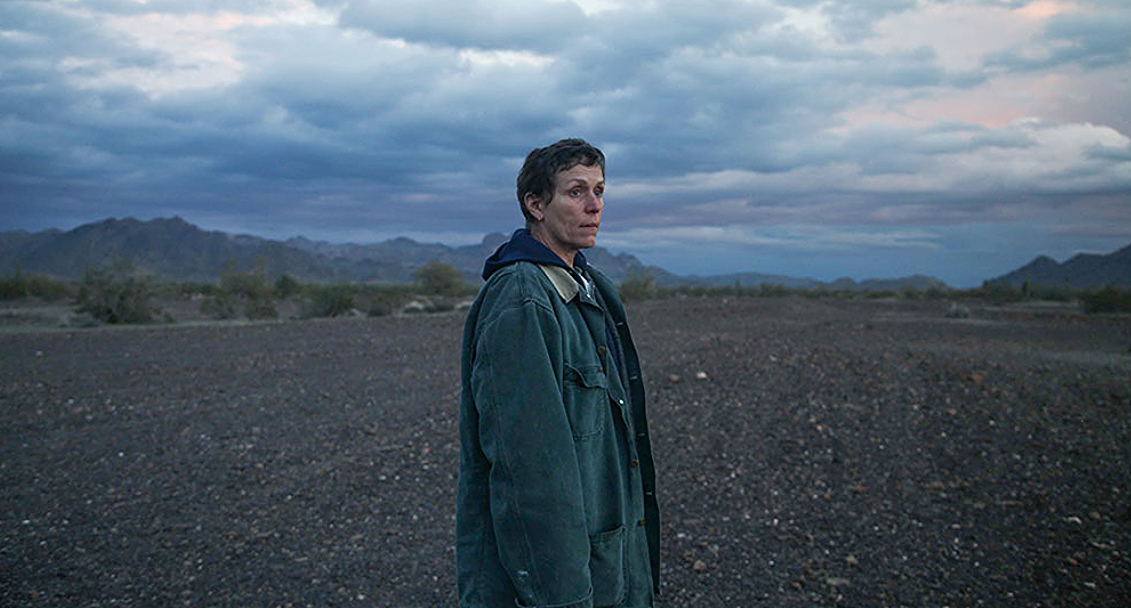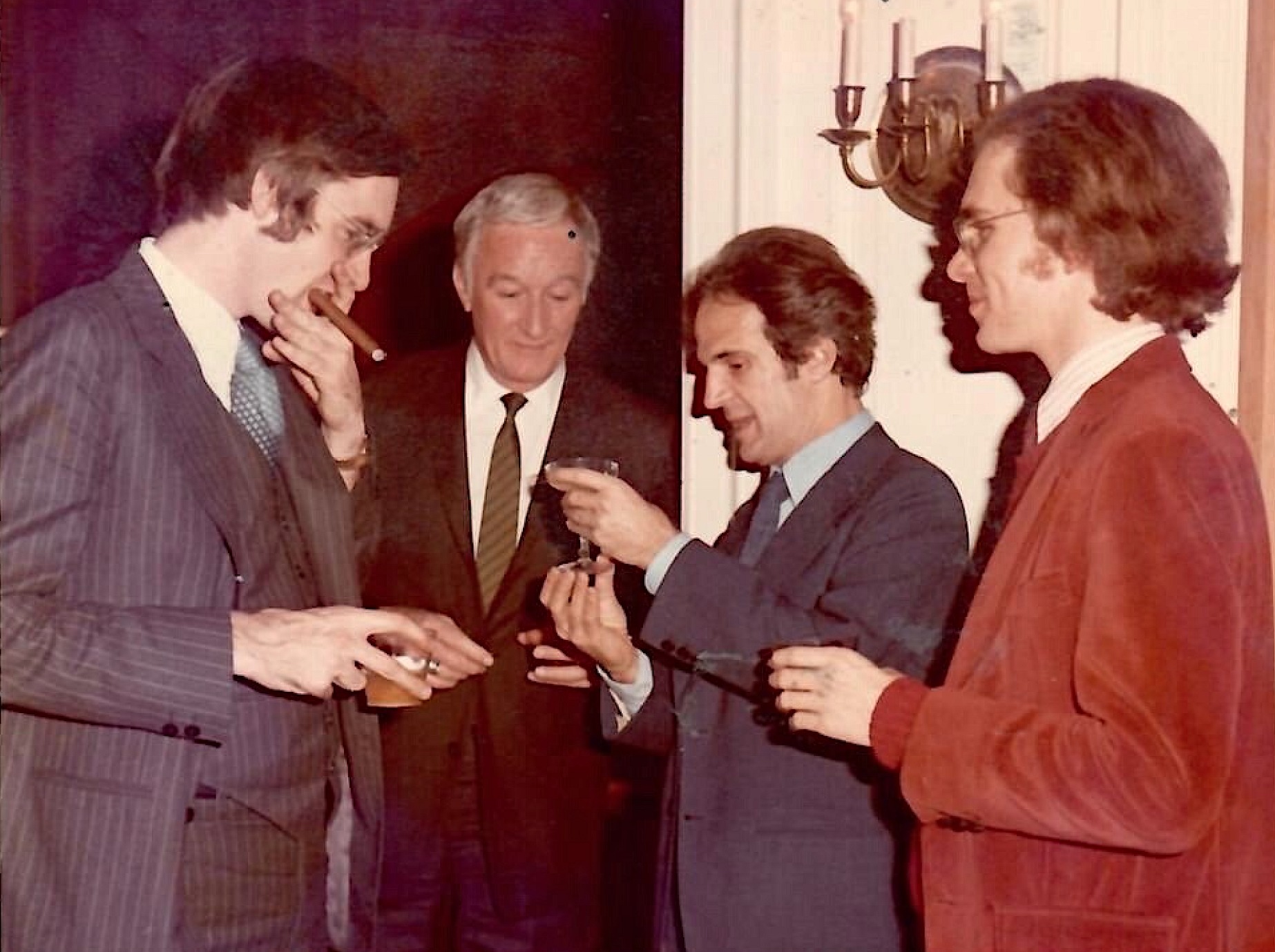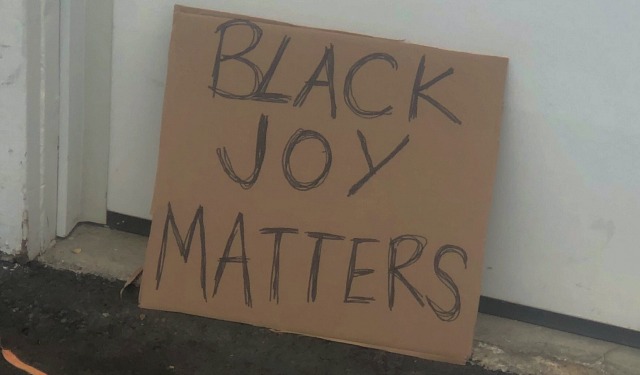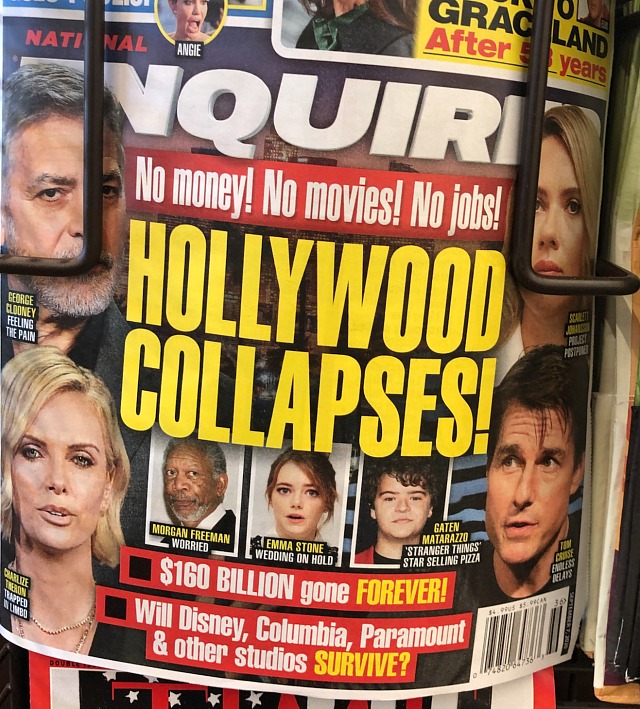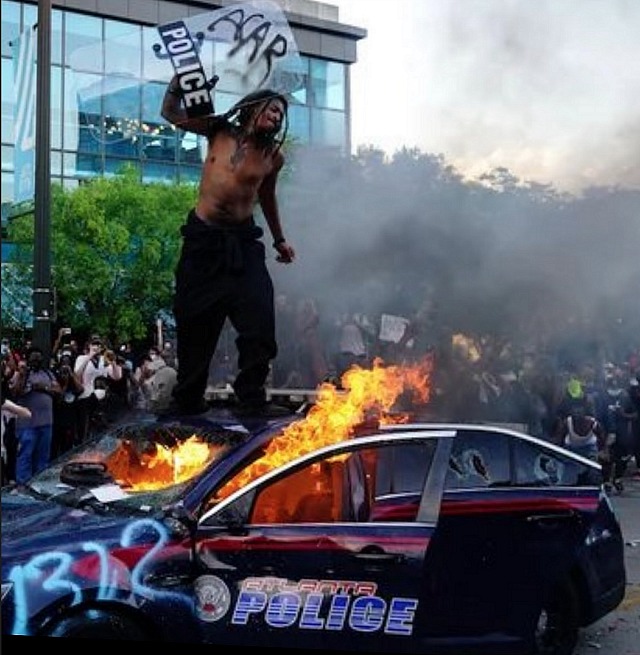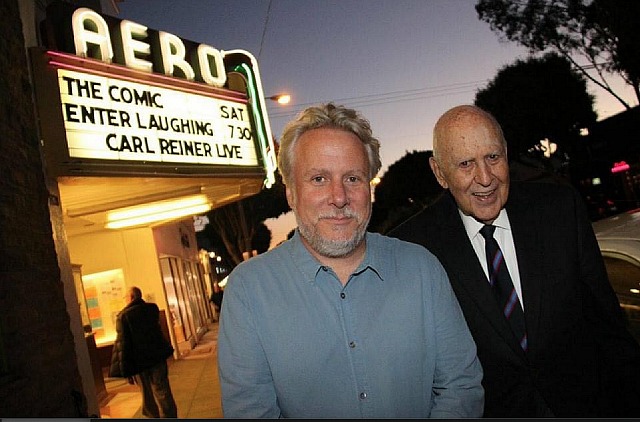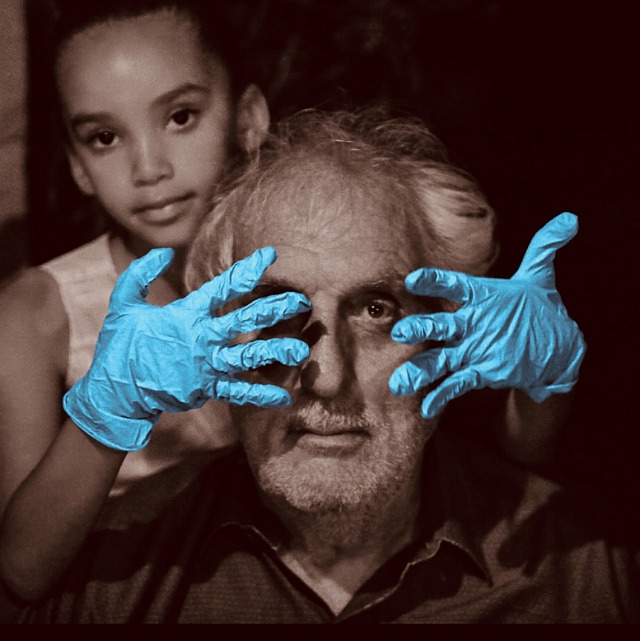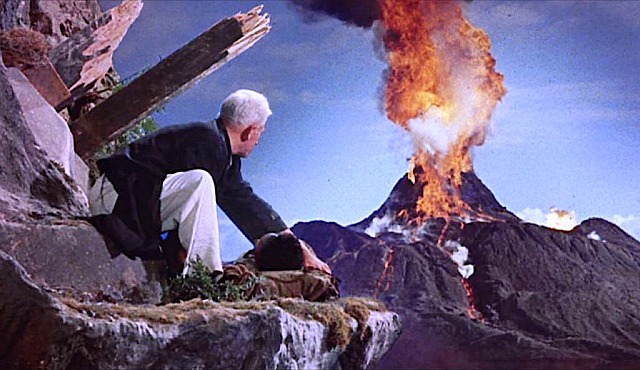How real is John Goodman‘s “Charlie Meadows” (John Goodman) in Barton Fink (’91)? It never mattered much to me, and I suspect it wasn’t a matter of great concern to Fink creators Joel and Ethan Coen. I think they just enjoyed fiddling with Charlie’s amiable, common-man personality (he’s like John Candy‘s Del Griffin), but at the same time without a clear idea what to do with him.
John Turturro’s Fink is a Clifford Odets-like playwright who’s agreed to write a Wallace Berry wrestling movie for an MGM-like Hollywood studio. After arriving in Los Angeles and checking into an oddly grim-feeling hotel, Fink meets Charlie, a fellow resident who seems friendly and folksy and easy to talk to. Later, of course, Fink learns from a pair of hard-boiled detectives that Meadows is actually “Mad Man Mundt”, a mass murderer.
But in the final act Mundt’s hellfire insanity seems a little over-the-top, and we’re led to wonder if he’s flesh and blood or perhaps some kind of demon from Fink’s creative unconscious.
Joel and Ethan, the director-writers of Barton Fink, allow us to wonder about Mundt without tipping their hand. He might be an actual killer or a weird creation of some kind, or maybe a mixture of the two. (Real Charlie, imagined Mundt.) We’re never quite sure, and that’s intentional, of course.
Just as writers are condemned, in a sense, to live in their thoughts, instincts and imaginations, Fink is enslaved to anxieties and nightmares that course through his system, partly about where modern urban society is heading as far as “the common man” is concerned, and partly about whether or not a kind of irrational madness may be afoot.
Fink’s greatest concern may be about that ultimate bugaboo and destroyer of worlds — writer’s block. What seems certain is that there’s a kind of madness in Fink’s creative brain, and a corresponding madness in the behaviors of “Charlie Meadows” as well as Judy Davis’s character, the unfaithful wife of that alcoholic, William Faulkner-like writer who goes on benders from time to time.
Nothing is stable or settled in Barton Fink — everything that transpires feels a bit skewed or bent or…overly imagined?
Likewise, Anton Chjigurh (Javier Bardem), the deranged hit man in No Country For Old Men (’07), may also be a ghost of some kind, at least as far as Sheriff Tom Bell (Tommy Lee Jones) is concerned.
Like Fink, Sheriff Bell frequently meditates about the moral tempo of society and how a kind of madness seems too be spreading like a plague. As he slowly tracks the destructive Chigurh, Bell is more and more convinced that this murderer with a mid ’60s Ringo Starr hair is the culture and vice vera, and that it’s all changing for the worse. Chigurh, he believes, is the ultimate manifestation of this growing moral rot. It almost seems, in fact, as if Bell is more focused on the omens than in actually catching Chiguh.
Read more


